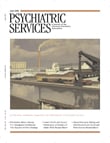The book The Trial in American Life examines the impact of high-profile trials on American culture. In this book, Robert Ferguson, a professor of law, literature, and criticism at Columbia University, explores how popular trials develop into an expression of consensus and discord for American society, with public sentiment often affecting a trial's development and outcome.
Part 1 of the book examines the various literal and symbolic roles that trial participants play. The American trial is a ritual designed to foster respect for the legal process and participation by antagonistic parties. The ultimate symbolic goal of a trial is an expression and acceptance of communal justice. However, highly controversial cases, such as the Scopes Trial about evolution, can have the opposite effect of polarizing American society regarding a particular issue.
Part 2 of the book reviews a constellation of controversial trials that helped shape American history. The first such occurrence was the trial of former Vice-President Aaron Burr on charges of treason. This trial became a proxy referendum on Thomas Jefferson's presidency. This trial displayed the pubic and political pressures placed on an independent judiciary from a controversial trial.
During the prelude and strife of the American Civil War, controversial trials became metaphors for the emerging American experience. The 1859 trial of John Brown after his failed raid at Harpers Ferry, Virginia, received immediate national coverage via the telegraph. During his trial, Brown redefined himself from a failed, violent radical into a martyr for human freedom. The public response to this trial was heightened Southern fears of a slave rebellion and inflamed passions among Northern abolitionists, accelerating the nation's course toward civil war.
The book's discussion of Abraham Lincoln's assassination and subsequent trials of alleged assassination conspirators reveal how public fear and rage can nullify a defendant's due-process right to a fair trial. In the trial of Mary Surratt, one of the codefendants charged with conspiracy, her conviction was based on circumstantial evidence, with the ruling military tribunal intentionally suppressing evidence of Surratt's innocence. Prosecutors crafted Mary Surratt into a key figure of the conspiracy, resulting in her public demonization even after her execution.
The trial of the 1887 Chicago Haymarket Massacre defendants exemplified how public tensions regarding entire segments of American society can manifest into a vast injustice. In this case, dozens of policemen and labor protesters were killed after an explosion and were subsequently linked to immigrant anarchists. In the wake of the killings, several innocent anarchist activists were convicted and sentenced to death by a prejudicial jury and judge. The trial outcome exacerbated American fears of new immigrants and the threat of anarchist terrorism.
American mass hysteria regarding the specter of domestic enemies was revisited in the courts during the Red Scare of the 1950s. The book portrays the trial of Julius and Ethel Rosenberg, who were convicted of espionage. Although evidence indicates that the Rosenbergs were agents of Soviet intelligence, it is unclear that they had any role in passing atomic bomb secrets to the Soviet Union, the charge for which they were both convicted and executed. During sentencing, the presiding judge justified the death sentences for the Rosenbergs as a means of deterring other Americans from committing espionage. The American public vilified the Rosenbergs as the tangible embodiment of a nebulous Communist menace lurking on American shores, in part due to highly sensationalized and biased media trial coverage.
Part 3 of the book discusses the impact of modern media on trial proceedings. With the advent of modern technology, controversial trials have been distorted into high entertainment for commercial gain. The result is a skewed public understanding of the criminal justice process, increased potential for externally influenced trial outcomes, and heightened societal conflict over identified trial issues. Ferguson suggests that such negative outcomes could be minimized if trials were televised without interruption, commercials, or media commentary. He speculates that such modifications would enhance both public understanding and validation of American trials.
This book offers a broad view of American trials throughout history and their impact on America. It is of value to both the general and academic reader interested in America's legal development. Ferguson's lucid writing style makes The Trial in American Life an enjoyable read.

